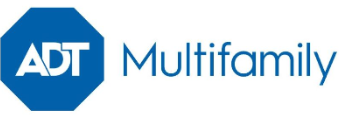How Smart Tech Drives NOI For Multifamily Even In An Economic Crunch

As Americans reconsider how and where they live, the pressure is on multifamily operators to hold onto more cash and to differentiate themselves from their competitors. To achieve both those goals, they may be able to turn to an unexpected ally: smart technology.
Multifamily communities are betting that connected home technologies like smart locks, thermostats and voice assistants can boost their net operating income during the current economic crunch. As the economy recovers, those technologies may help them gain ground in the battle for new residents.
“There are only so many times that you can repaint the walls or replace the countertops, but adding smart tech changes an apartment forever,” said Edson D’Souza, West Coast Director at ADT IoT & Smart Home. “Once they’ve lived in a smart apartment, residents don’t want to go back to a regular apartment.”
D’Souza, whose division of security giant ADT focuses on bringing smart technology into American homes and apartments, said that smart technology provides a jolt to buildings’ NOI because communities can charge a premium on top of rent for smart services.
Residents are typically happy to pay that premium because it brings a slate of new, high-tech features that can make life more convenient: being able to lock and unlock their doors with a cellphone; controlling lighting and heating throughout the apartment at the push of a button; and full building access from couch to curb without ever having to remember keys.
Even baby boomers who might never have thought they wanted a smart apartment are seeing the benefits of connectivity. D’Souza said numerous clients have recounted stories of older residents turning in their physical keys to the maintenance department because they’ve gotten so used to swiping in and out of their units with their phones.
Smart technology can also reduce operational costs for multifamily owners. Connected leak detectors can alert owners of an issue before irreparable water damage is done. According to ADT Multifamily East Coast Director Marshall Friday, some clients have reported that the cost of repairs after their last leak was more expensive than installing leak detectors in every unit on the property.
Smart thermostats that react to the weather and know when residents are home can drive utility savings for owners, helping to offset the upfront costs of installing smart technology systems. For newly constructed buildings, the cost of switching to smart technology is incremental, while the chance to brand a multifamily community as “smart” can mean a long-term boost to tenant satisfaction.
“A regular light switch might cost $10, and for $25, you can upgrade that to a smart switch for the entire lifetime of the building,” Friday said.

Friday said that ADT Multifamily is actually a continuation of longtime security and technology leaders Protection One and Network Multifamily, rather than an offshoot of the company’s security practice. However, he added that ADT’s smart technology comes backed by the safety measures of its security practice, which protects over 6 million properties across North America.
As the nation continues to reel from the coronavirus pandemic, the benefits of smart technology are only looking clearer to the renter community. With the need for social distancing, apartment residents may be wary of letting maintenance workers into their apartments while they are home. Smart locks can give residents peace of mind by letting them lock and unlock doors remotely, and handing them a digital record of who came into the apartment and when they left.
“With fears of vandalism and crime growing in some parts of the country, knowing that you have a monitored alarm is comforting, but also knowing you can lock your door or arm that alarm from anywhere there’s internet is a benefit,” Friday said.
Those same access controls are also a boon for multifamily owners and property managers. When multifamily communities without smart technology want to close off amenities like gyms and pools, it’s usually a question of hanging paper signs and caution tape, D’Souza said. But with a smart solution from ADT, property managers can remotely control who has access to what amenities during what hours, allowing for safe and simple reservation and cleaning schedules.
Managers can also give temporary building and unit access to prospective tenants who want to come in and take a self-guided tour of an apartment. The ability to host more tours in the era of social distancing can mean more leases, signed more quickly.
But these self-service options aren’t just short-term fixes for the coronavirus era, Friday said. Instead, they are the new normal for a more connected generation.
“Statistically, millennials and Gen Z don’t share the same dreams of homeownership that their parents did,” Friday said. “They’re looking for flexibility, and that means more years spent renting, and having smart technology is becoming a prerequisite for more of them every day.”
This feature was produced in collaboration between the Bisnow Branded Content Studio and ADT Multifamily. Bisnow news staff was not involved in the production of this content.

